In the bustling bazaar of fashion, bags reign supreme, offering endless options. Whether you’re into the leather’s buttery softness, the canvas’s laid-back charm, or the high-tech allure of recycled materials, there’s a bag for every whim and wallet. The market is a kaleidoscope of styles, from sleek minimalist totes to chunky, adventure-ready backpacks. However, as consumers grow more conscientious, looks and price tags no longer cut it. Quality, environmental sustainability, and safety have vaulted to the forefront of our buying criteria. That’s where certifications step in, acting as the ultimate litmus test. Let’s explore eight certifications every bag buyer should have on their radar.
Leather Working Group (LWG) Certification
- Name & Issuing Body: The Leather Working Group (LWG) is a globally influential organization in the leather industry. It is the go-to authority for evaluating tanneries worldwide.
- Assessment Criteria: LWG certification zeroes in on environmental stewardship. Tanneries are graded on water usage, with top performers demonstrating efficient conservation. Waste management is another crucial metric, demanding proper disposal and recycling. Chemical use during the tanning process is tightly regulated to curtail environmental damage.
- Coverage: This certification is laser-focused on leather. It examines every phase of leather production, from the raw hides to the finished leather, leaving out non-leather elements like zippers or straps made from other substances.
- Benefits for Consumers: Quality-wise, leather from LWG-certified tanneries often boasts superior craftsmanship. Environmentally, it means your leather bag has a smaller ecological footprint. And for those with an eco-guilty conscience, it offers peace of mind.
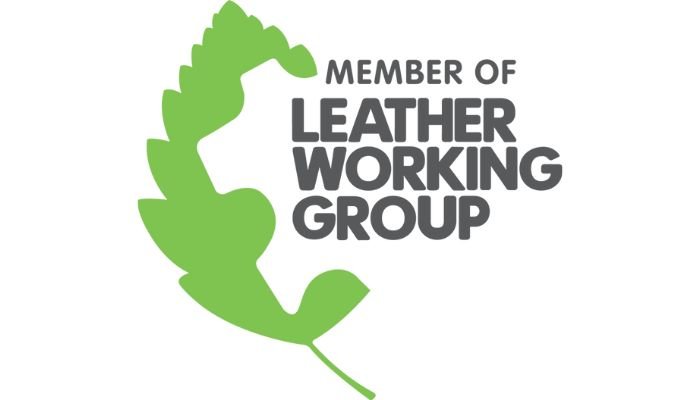
Leather Working Group (LWG) Certification
Global Organic Textile Standard (GOTS)
- Name & Issuing Body: Overseen by an international consortium, the Global Organic Textile Standard (GOTS) is the gold standard for organic textiles.
- Assessment Criteria: GOTS is meticulous. It starts at the very root – the cultivation of raw materials. Crops such as cotton, hemp, or linen, which could form the fabric of your bag, must be grown without synthetic pesticides, fertilizers, or GMOs. Strict organic rules apply throughout the production pipeline, from fiber processing to the final assembly of the bag.
- Coverage: All textile components of a bag fall under the GOTS umbrella. Whether it’s the outer shell, the lining, or a small fabric pocket, GOTS has it covered if it’s made of textile.
- Benefits for Consumers: In terms of quality, organic fabrics are more breathable and have a lovely natural texture. Health-wise, they reduce the risk of skin irritations from chemical residues. Socially, they bolster organic farmers who rely on sustainable farming practices.
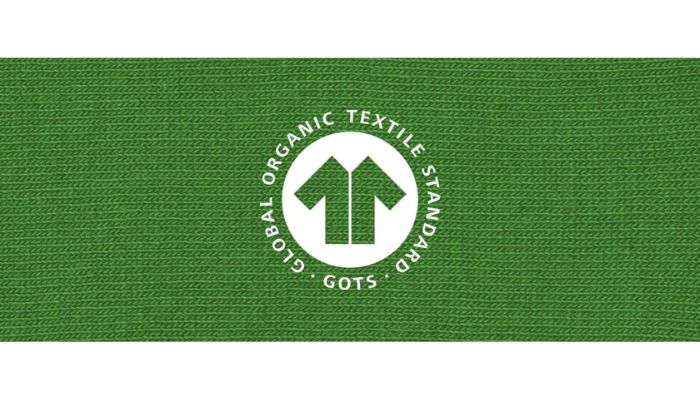
Global Organic Textile Standard (GOTS)
Bluesign® Certification
- Name & Issuing Body: Bluesign® is an independent entity renowned for its comprehensive take on sustainable textile production.
- Assessment Criteria: Bluesign® casts a wide net over the entire supply chain. It requires raw material suppliers to slash harmful chemicals right from the start. It enforces strict limits on water and energy consumption during manufacturing, pushing for maximum efficiency. Worker safety is also a top priority, ensuring factories provide proper safety gear and training.
- Coverage: This certification blankets all aspects of bag production, from the sourcing of materials to the finished product, including fabrics, hardware, and any chemical treatments.
- Benefits for Consumers: You’re getting a bag made with minimal environmental impact. The production controls associated with Bluesign® often result in higher-quality products, and you’re also supporting ethical labor practices.
-
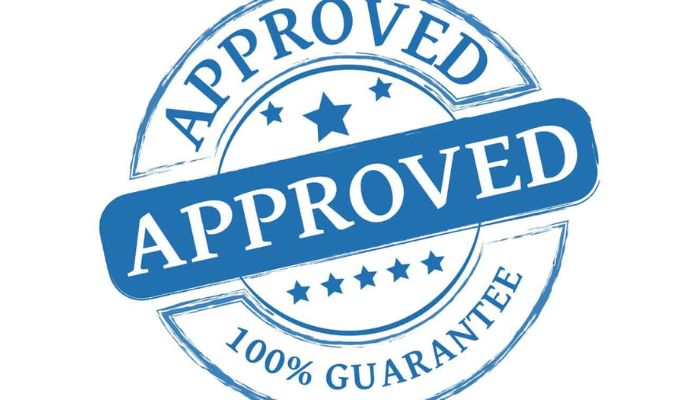
Bluesign® Certification
- Name & Issuing Body: Fairtrade is coordinated by an international network. It’s all about leveling the playing field in global trade.
- Assessment Criteria: For bags, Fairtrade ensures that the farmers who grow the raw materials and the workers who stitch them together are paid fair wages. It also guarantees access to safe working environments and frequently funds community development projects in producing regions.
- Coverage: It can apply to both textile and non-textile parts of a bag, provided there’s human labor involved in their production.
- Benefits for Consumers: Buying Fairtrade-certified bags is a powerful way to make a social impact. You’re directly improving workers’ lives while still snagging a well-crafted accessory.
-
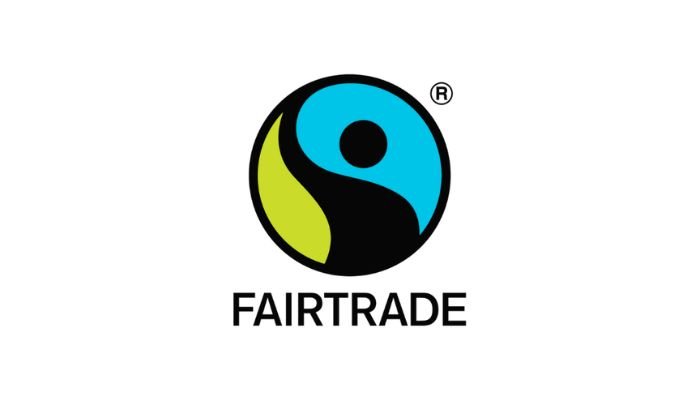
Fairtrade Certification
ASTM International Standards
- Name & Issuing Body: ASTM International, a leading standards developer, has a significant footprint in the bag industry.
- Assessment Criteria: ASTM standards are efficient. They measure the tensile strength of straps to handle the weight you load into the bag without giving way. The burst strength of compartments is tested to prevent sudden rips, and the abrasion resistance of fabrics ensures your bag can brave daily wear and tear.
- Coverage: These standards apply to all physical parts of the bag, from the fabric to the hardware.
- Benefits for Consumers: An ASTM-compliant bag is built to last. You won’t have to worry about frequent repairs or replacements, saving time and money.
-
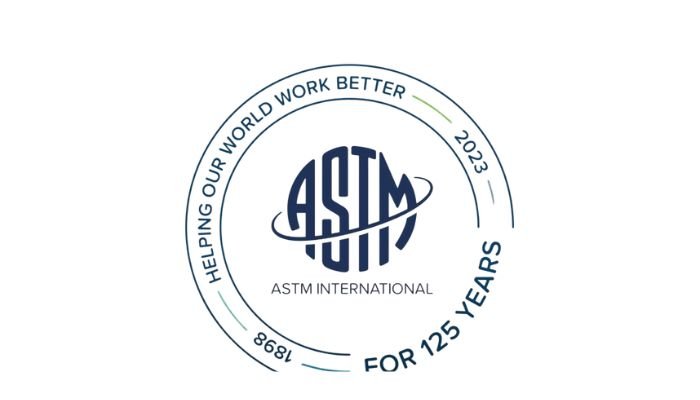
ASTM International Standards
Oeko-Tex® Standard 100
- Name & Issuing Body: Oeko-Tex® is a globally recognized organization, and its Standard 100 is a cornerstone of textile safety.
- Assessment Criteria: This certification subjects textiles to tests for over 100 harmful substances, including heavy metals, formaldehyde, and allergenic dyes. Only fabrics that pass these rigorous tests are deemed safe for human contact.
- Coverage: Oeko-Tex® Standard 100 is centered on bag textile components such as the body fabric, lining, and straps.
- Benefits for Consumers: Carrying an Oeko-Tex®-certified bag safeguards your skin. It can also avoid potential allergic reactions and other health issues associated with toxic chemicals.
-
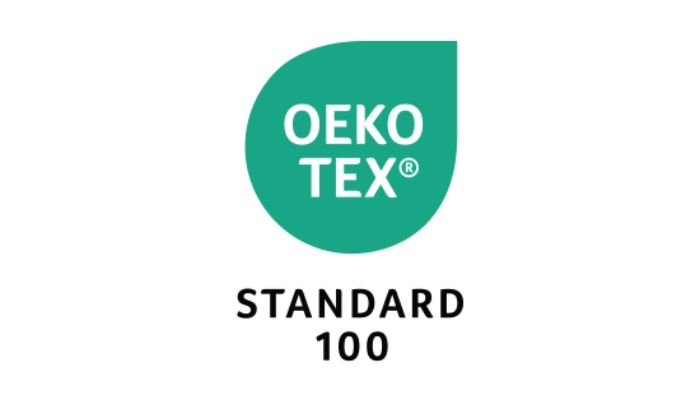
Oeko-Tex® Standard 100
ISO 9001
- Name & Issuing Body: Under the International Organization for Standardization, ISO 9001 is about quality management systems.
- Assessment Criteria: Brands with this certification have established processes to ensure product quality from start to finish. These include conducting market research for design, implementing quality checks during production, and providing efficient customer service post-purchase.
- Coverage: It covers all aspects of a bag brand’s quality operations, from sourcing to after-sales support.
- Benefits for Consumers: Shopping from an ISO 9001-certified brand provides a smoother experience. Your bag will likely meet your expectations, and any issues will be resolved promptly.
-

ISO 9001
- Name & Issuing Body: The Consumer Product Safety Improvement Act (CPSIA) is a U.S. law enforced by relevant government agencies.
- Assessment Criteria: CPSIA zeroes in on the safety of children’s products, especially bags. It prohibits or limits hazardous materials like lead, phthalates, and flame retardants.
- Coverage: This compliance pertains specifically to bags made for children, scrutinizing every component that could come into contact with kids.
- Benefits for Consumers: For parents, a CPSIA-compliant bag provides unrivaled peace of mind, knowing their child is protected from dangerous substances.
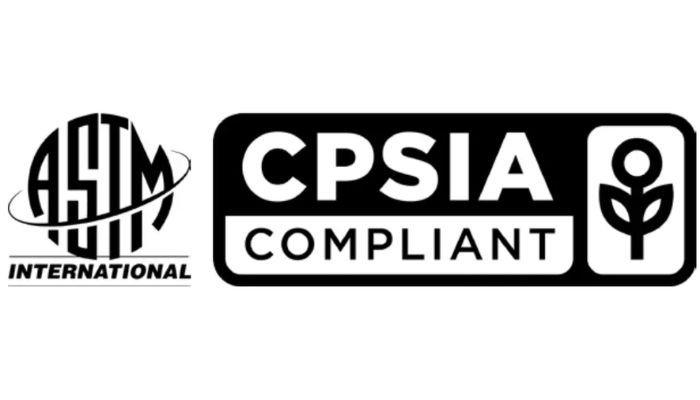
CPSIA Compliance
Comparison Table
CertificationCore FocusApplicable MaterialsLWGEnvironmental protection in leather productionLeatherGOTSOrganic textile productionTextilesBluesign®Holistic sustainable production bag componentsFairtradeFair labor & social impact labor-involved partsASTMPhysical durability bag componentsOeko-Tex® 100Textile safetyTextilesISO 9001Quality management operationsCPSIAChild product safetyChildren’s bags
Buying Tips
- Outdoor adventurers should prioritize ASTM-compliant bags for their rugged durability.
- If you’re an eco-warrior, look for GOTS, Bluesign®, or LWG-certified bags.
- Parents should never compromise on CPSIA compliance when buying kids’ bags.
These certifications aren’t just decorative labels but essential signposts for smart shopping. By heeding them, you’ll bring home bags that are not only stylish but also top-notch in quality, safety, and sustainability.
Future Trends
The landscape of bag certifications is in constant flux. With the advent of novel materials like biodegradable polymers and innovative fabrics, we can anticipate more niche certifications emerging. Existing standards will also likely tighten their reins, adapting to the growing public awareness of environmental and social issues. Please keep your eyes peeled for these developments, as they’ll supercharge your future bag-buying decisions.
Have you ever based a bag purchase on a certification? What was that experience like? Do you have any questions about these certifications? Please share your thoughts in the comments below, and let’s start an engaging conversation!



